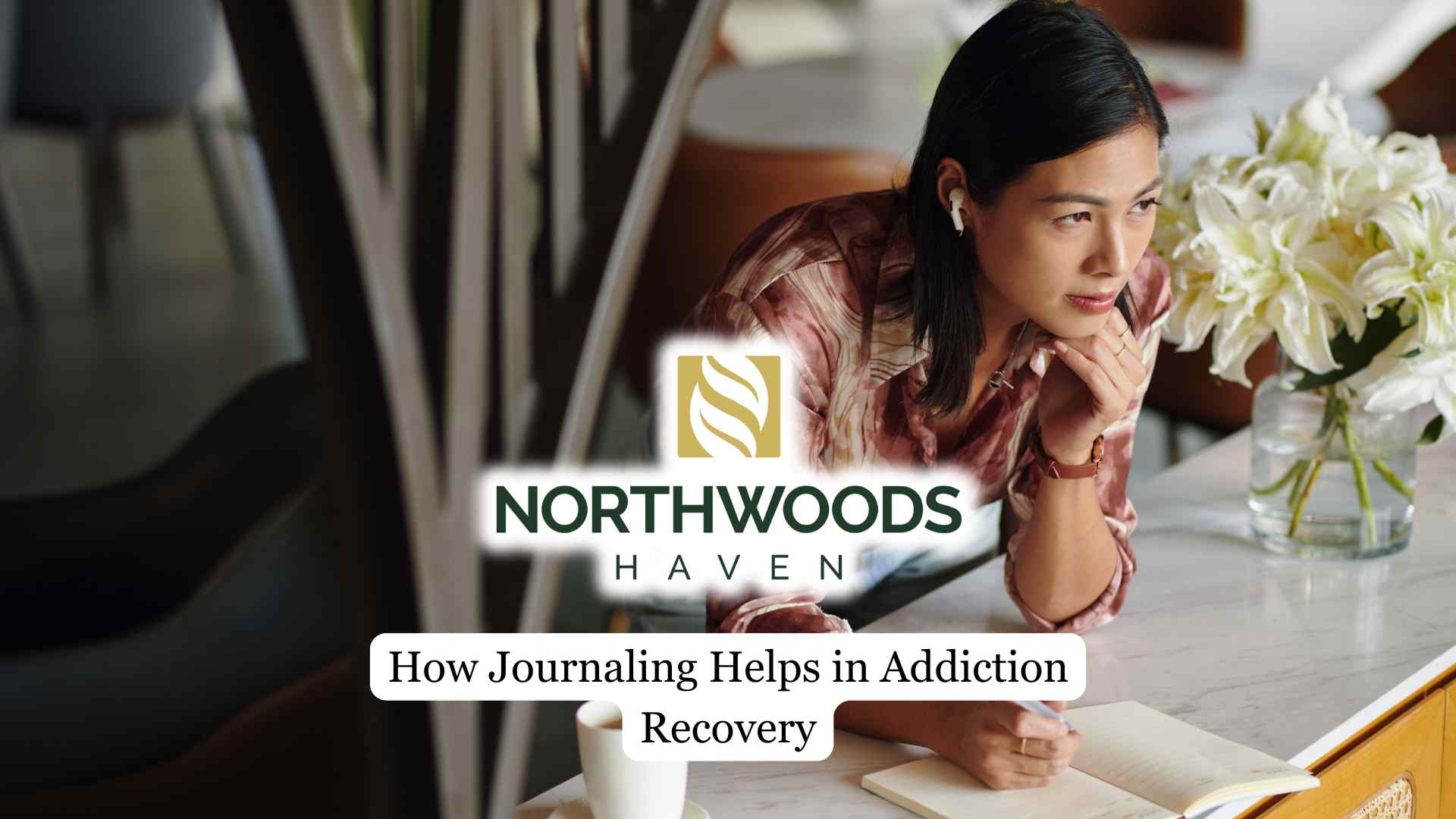Writing in a journal allows people to examine their thoughts and feelings in a secure and organized manner, leading to a better understanding of their actions and what triggers them. This therapeutic approach not only promotes self-awareness but also offers an emotional release, enabling individuals to work through the complicated emotions that frequently go hand in hand with the recovery journey.
In this piece, we will explore the numerous ways in which journaling aids addiction recovery, including cultivating mindfulness and self-reflection, as well as encouraging accountability and personal development.
Increases Mindfulness
When you engage in the act of writing, you’re encouraged to focus on the present moment, allowing you to become more aware of your thoughts and feelings as they arise. This mindfulness practice helps you slow down, reflect, and process your experiences without judgment, serving as a form of meditation.
Through regular journaling, you’ll develop a deeper understanding of your emotional triggers and responses, fostering greater self-awareness. As you document your experiences, you’ll learn to observe your emotions rather than react impulsively, leading to improved emotional regulation.
This heightened self-awareness and emotional control can significantly reduce stress and anxiety levels, contributing to a more stable recovery process.
Our team of addiction specialists at Northwoods Haven Recovery will help you navigate the hardships of substance abuse through our top quality addiction treatment programs.
Find more information here:
Promoting Self-Reflection
Recovery journaling encourages you to examine your daily life and challenges, significantly increasing your self-awareness of the thoughts and behaviors related to addiction. By reflecting on your experiences through writing, you can identify patterns and underlying causes of your addiction, fostering personal growth and progress in your recovery.
The process of self-reflection through journaling facilitates a clearer understanding of your emotional responses and triggers, aiding you in making positive changes as you move forward. Regular entries in your journal document specific goals related to sobriety and wellness, enhancing accountability and motivation by tracking your progress and setbacks.
On top of all, self-reflection allows you to celebrate small achievements, reinforcing a sense of accomplishment and commitment to your recovery goals.
Find out more about the role of mindfulness in your recovery journey and how great of an impact this practice has on long-term sobriety.
Providing Emotional Outlet
When you’re facing the challenges of addiction recovery, you may struggle with complex emotions like guilt, shame, and anxiety.
Journaling provides a private, judgment-free space to express these feelings, allowing you to process them in a healthy manner. By externalizing your worries through writing, you can gain a sense of control over your emotions, experiencing psychological relief similar to mindfulness practices.
The act of writing about difficult experiences facilitates emotional processing, helping you articulate and confront feelings that might otherwise remain unaddressed. Regular journaling creates a safe place for emotional release, serving as a cathartic tool that alleviates stress and prevents emotional buildup.

Tracking Recovery Progress
As you document your journey, you create a comprehensive record of your milestones, helping you recognize how far you’ve come in your sobriety and personal growth.
By reflecting on your daily and weekly achievements, journaling combats feelings of stagnation or frustration, reinforcing a sense of accomplishment that fuels your motivation to continue moving forward.
Tracking your recovery progress through written entries also facilitates the identification of effective coping strategies that have contributed to your success. Regular journaling enhances accountability, as you can review your journey and recognize patterns in your behavior and emotional responses.
Celebrating small milestones in writing boosts your motivation and encourages continued commitment to your recovery goals, fostering a positive outlook on the path ahead.
Reinforcing Commitment to Sobriety
Reflective writing allows you to articulate your reasons for wanting to stay sober, creating a personal manifesto you can revisit during challenging times. As you journal, you’ll identify negative thoughts and triggers that may jeopardize your sobriety, empowering you to develop coping strategies to maintain your commitment.
Incorporating a gratitude journal into your recovery practice enhances positivity and resilience, further solidifying your dedication to staying sober. When you track your progress through journaling, you reinforce a sense of accomplishment and motivation to continue on your path to recovery.
Check out these relapse prevention techniques which have proven to be effective when returning to counterproductive substance abuse habits.
Types of Journals Used in Recovery
A diary journal captures your daily events, struggles, and celebrations, providing comfort and continuity during your journey.
Reflection journals, with brief entries at day’s end, help you evaluate decisions and feelings, promoting self-awareness and accountability.
Gratitude journals, where you regularly list things you’re thankful for, foster positivity and hope, reducing stress and improving mental health.
Spiritual journals document your spiritual growth and aspirations, connecting your recovery to personal beliefs and values.
Health journals track your physical and mental status over time, helping you recognize patterns, cope with symptoms, and celebrate progress.
Practical Tips for Keeping a Recovery Journal
Choose an attractive notebook or digital platform that inspires you to write regularly, as an appealing medium can enhance motivation and consistency in journaling.
Aim for daily entries, even if they’re brief and spontaneous, such reflections can be just as impactful as longer sessions and help establish a routine.
Use longhand writing when possible, as studies suggest that it may provide greater emotional benefits compared to typing by fostering deeper cognitive engagement. Incorporate various forms of expression, such as drawings, gratitude lists, or motivational prompts, to keep the journaling process dynamic and personalized.
Don’t worry about grammar or spelling, rather focus on authenticity and self-expression, allowing your thoughts to flow freely without the pressure of external evaluation.
Final Thoughts from Northwoods Haven Recovery
Journaling can provide clarity and support, whether you’re taking your first steps toward sobriety or seeking to strengthen your ongoing recovery efforts. At Northwoods Haven, we recognize the transformative power of journaling as part of our comprehensive approach to treatment. By integrating journaling into our premium Intensive Outpatient Programs in Minneapolis, MN, we empower individuals to explore their emotions, track their progress, and develop a deeper understanding of their recovery journey.



